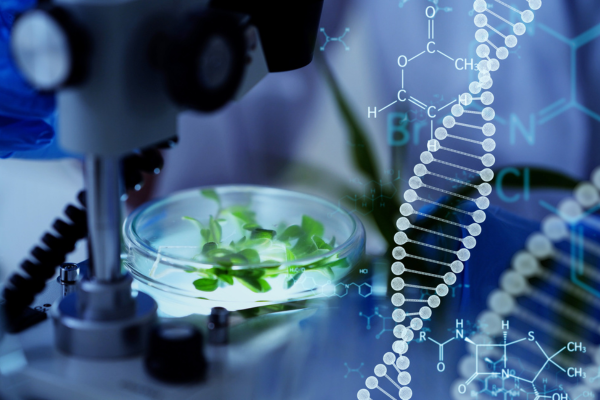Over the past two decades, the world has witnessed a technological boom driven by artificial intelligence, data science, and renewable energy. Yet, quietly but powerfully, another revolution has been gathering pace, engineering biology.
Sometimes referred to as synthetic biology, this field combines the precision of engineering with the complexity of biology to design new organisms, reprogram cells, and unlock solutions to some of humanity’s most pressing challenges.
From sustainable food production and climate change mitigation to personalized medicine and industrial biomanufacturing, engineering biology represents the next great frontier.
Nowhere is this potential being more hotly debated than in the United Kingdom. The question is no longer whether engineering biology will shape the future but whether the UK can lead a biotech renaissance and cement itself as a global powerhouse in the sector.
Engineering Biology: Redefining the Boundaries of Science
At its core, engineering biology is about treating living systems with the same design principles that engineers use in electronics or software. This means programming DNA sequences like code, assembling biological parts like hardware, and designing organisms with predictable outputs.
It’s a convergence of biotechnology, computational biology, genetic engineering, and machine learning, creating an entirely new toolkit for innovation. For instance, startups and research labs are developing microbes that can produce biofuels, biodegradable plastics, or even food proteins that mimic meat and dairy without the environmental footprint.
In medicine, engineered biology holds the promise of faster vaccine development, cell-based therapies, and targeted drugs designed with unparalleled precision. According to the UK BioIndustry Association (BIA), the global synthetic biology market is projected to exceed $30 billion by 2030, with annual growth rates surpassing 20%. This pace of innovation begs the question: why should the UK be at the center of this story?

The UK’s Unique Advantage
The UK has long been a hub for life sciences and biotechnology. It is home to world-class universities such as Oxford, Cambridge, and Imperial College London, all of which are leading research in genetics, bioengineering, and computational biology.
The country has also produced global biotech success stories like Oxford Nanopore, which pioneered real-time DNA sequencing, and DeepMind, whose AI protein-folding breakthroughs have transformed structural biology.Government strategy has also been pivotal. In 2023, the UK announced £2 billion in funding for life sciences R&D, highlighting engineering biology as a critical pillar.
The UK also launched the National Engineering Biology Programme, aimed at commercializing discoveries, supporting startups, and scaling innovations from the lab into real-world applications. Unlike other countries, the UK’s compact geography, highly networked research institutions, and close collaboration between academia, government, and industry give it a unique ecosystem for biotechnology growth.
Moreover, the country has an NHS-driven health data advantage. With decades of centralized patient data, the UK can test and validate biotech innovations at a scale few other nations can match, crucial for clinical trials and bioinformatics-driven medicine.
Related: The UK Frontier 6 : What They Mean For The Next Decade Of Innovation.
Challenges on the Road to Leadership
Yet, leadership in engineering biology is not guaranteed. The UK faces stiff competition from the United States, which dominates biotech investment, and from China, which has made engineering biology central to its innovation agenda.
According to McKinsey, the US attracts over 40% of global biotech funding, dwarfing the UK’s share.Another challenge lies in regulation. Biotechnology often moves faster than policy, and engineering biology raises ethical questions around gene editing, synthetic organisms, and biosecurity.
Striking the right balance between innovation and oversight will determine whether the UK can scale safely and sustainably. Skills shortages also persist, biotech startups frequently struggle to recruit talent with combined expertise in computational modeling, molecular biology, and systems engineering. Without a clear pipeline of trained professionals, momentum could stall.

Biotech Renaissance and the Promise of Global Impact
If the UK succeeds, the implications will be enormous. A biotech renaissance led by engineering biology could reshape global supply chains, reduce dependence on fossil fuels, and address the climate crisis.
For example, engineered microbes could capture carbon from the atmosphere at scale, synthetic crops could withstand extreme weather, and lab-grown proteins could help feed a growing global population without expanding farmland.
For healthcare, this renaissance could mean faster development of vaccines, gene therapies that cure inherited diseases, and bioengineered tissues that replace damaged organs.
With a strong foundation in both science and policy, the UK has the chance to export not just technologies but entire biomanufacturing ecosystems, creating new industries and high-value jobs in the process.
Can the UK Lead?
So, can the UK truly lead a biotech renaissance? The evidence suggests it has the building blocks: a robust research ecosystem, government backing, and a history of biotech breakthroughs.
But leadership will require bold investment, international collaboration, and an innovation-friendly regulatory framework. It also demands storytelling, positioning engineering biology not as an abstract science but as a human-centered revolution capable of solving real-world problems.
If the UK rises to the challenge, it will not just compete in the global biotech race, it could set the standards, define the ethics, and inspire the world to reimagine what is possible when engineering meets biology. The rise of engineering biology is inevitable. The question is whether the UK will seize this moment in history to lead a new era, a true biotech renaissance that transforms industries, economies, and lives.







